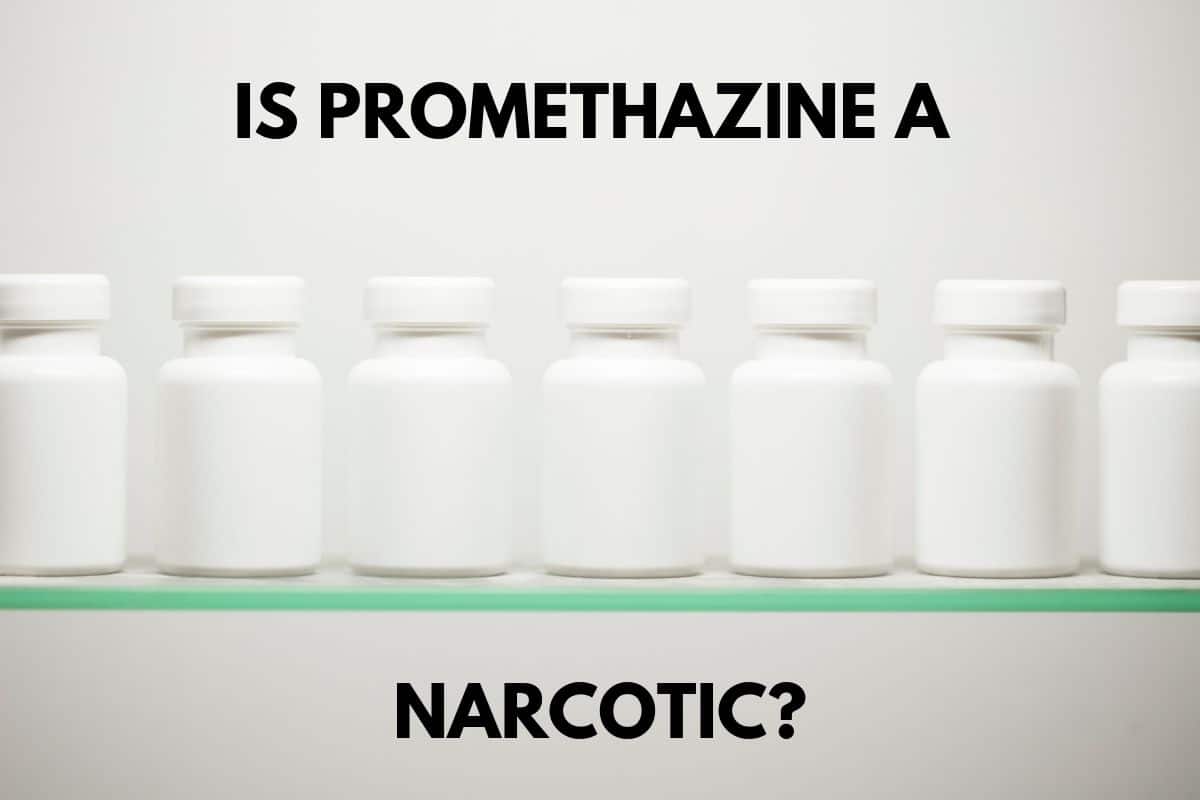Promethazine (whose full name is promethazine hydrochloride) is a prescription drug used to treat a number of common ailments: allergies, motion sickness, difficulty falling asleep, nausea and vomiting, anxiety, and post-op pain management. But like so many other prescription-only medications these days, is promethazine a narcotic with the potential to be abused or cause an overdose?
The Definition Of A Narcotic
Technically, no, promethazine is not a narcotic, a term that’s frequently misused, often interchangeably as a reference to any sort of illegal substance. According to the Drug Enforcement Administration, the country’s leading regulator of the manufacturing and distribution of drugs, the definition of a narcotic specifically refers to opioids, both opiates and synthetic ones.
A more general accepted use of the term refers to narcotics as drugs that alter the mind either by acting as an analgesic (pain relief), dulling the senses, or causing excessive sleepiness. Codeine, heroin, and morphine are a few examples of narcotics. The narcotic classifcation, or rather, lack thereof, is rather confusing as anyone who knows how promethazine works knows that this medication can indeed have all of those side effects.
So why isn’t promethazine considered a narcotic?
Ultimately, this determination is made by the DEA. The DEA has a drug scheduling and controlled substances list that are the veritable “who’s who” of dangerous (and potentially dangerous) drugs. Promethazine is absent from both of these lists which has allowed this medication to experience signficantly lower levels of restrictions.
However, the lack of a formal proclamation of danger doesn’t mean this medication is without its own share of risks. Take for instance another seemingly harmless substance such as gabapentin. That medication recently made headlines due to it causing an alarming number of drug overdoses and having high rates of abuse. It too slipped under the DEA’s radar, was widely considered by the medical industry to be “safe”. This in turn led to the lax regulation that quickly led to overprescribing practices that made gabapentin an easily accessible drug for illict use, and how the dangers of that medication eventually came to light.
How Promethazine Works (And How It Can Be Dangerous)
Promethazine hydrochloride is a part of a similarly named class of drugs called phenothiazines. These types of drugs don’t help manage pain or anxiety by affecting neurotransmitters (like narcotics do), but instead affects histamines.
Histamines are important molecules that signals cells telling them what to do and when. They are best known (and infamous for) their role in causing pesky allergic reactions but are also involved in our immune system, feelings of tiredness, and nausea. Promethazine and other phenothiazines prevent the release of these molecules, effectively acting as an antihistamine but also having sedative and anti-vomiting capabilities.
Sounds pretty harmless so far, right?
Like gabapentin, the potential dangers of promethazine aren’t so much the drug itself, but how it interacts with other drugs. Promethazine can prolong or intensify the sedative effects of other central nervous system depressants which includes alcohol, barbiturates, opioids, antidepressants, and tranquilizers. It can also have negative interactions with other medications such as vasopressors or anticholinergics.
Promethazine Side Effects
- Respiratory depression (especially when used with CNS depressants)
- Increased risk of seizures
- Lower white blood cell count
- Extreme sleepiness
- Neuroleptic Malignant Syndrome (specifically when used with antipsychotic drugs)
- Involuntary and/or incontrollable muscle movements
- Confusion and disorientation
- Hallucinations
- Euphoria
- Decreased blood pressure, slower or faster heart rate
- Dermatitis
- Dry mouth
- Nausea and vomiting
- Jaundice
- Apnea
Promethazine Overdose
Promethazine isn’t known to be addictive, however, it can result in fatal overdoses. The majority of signs of a promethazine overdose are involved with the central nervous system. Ranging in severity they can include:
- Ataxia
- Athetosis
- Extensor-plantar reflexes
- Hypotensions
- Hyperreflexia
- Hypertonia
- Respiratory depression
- Unconsciousness
The more easily detectable side effects, however, may resemble the effects of atropine poisoning. These effects include dry mouth, dilated pupils, flushing, and gastrointestinal issues.
Legal Doesn’t Mean Safe
Promethazine may be a legal prescription medication that’s not a concern for drug-enforcement officials, however, that doesn’t mean it doesn’t have the potential to be abused or cause harm. It’s important to treat all drugs, even the “safe” ones with caution. Be vigilant and ensure that promethazine does not fall into the wrong hands as it could quickly become deadly if combines with another illicit substance.
Sources:https://www.dea.gov/sites/default/files/2020-06/Narcotics-2020.pdf
https://en.wikipedia.org/wiki/Histamine
https://www.accessdata.fda.gov/drugsatfda_docs/label/2008/008306s030lbl.pdf

































